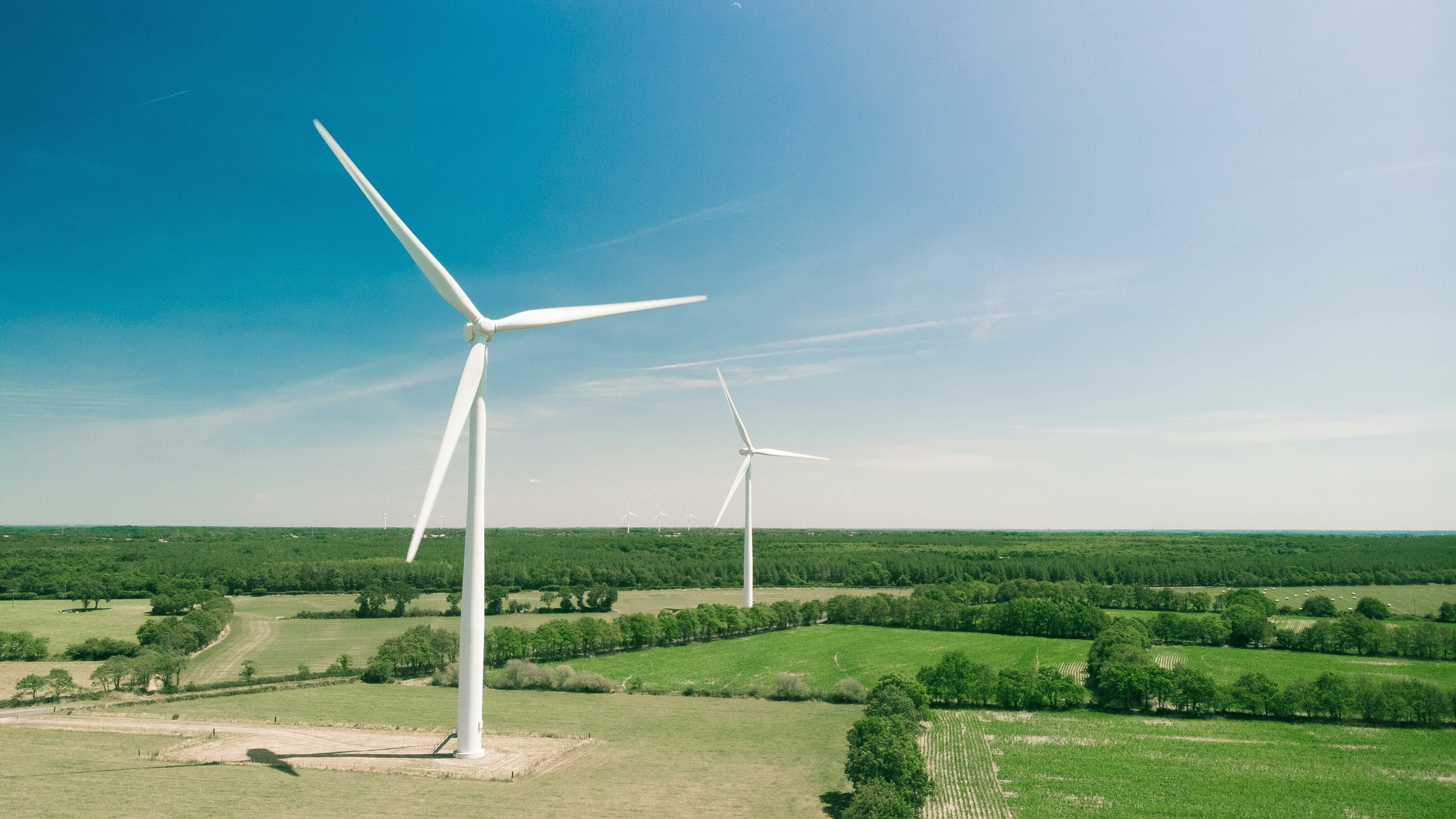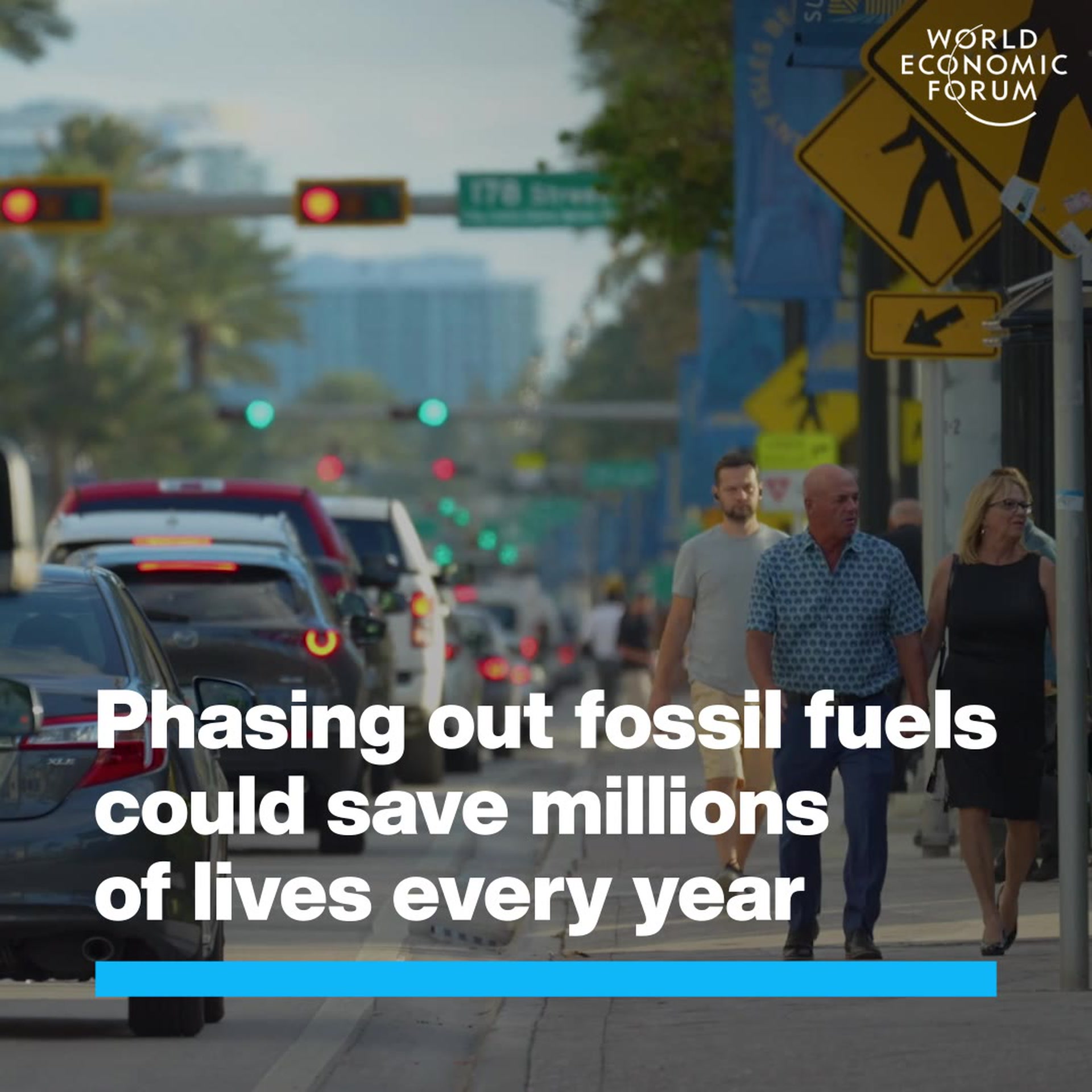An Indian chest surgeon explains why he rarely sees healthy lungs anymore

A smoggy morning in New Delhi, November 2018 Image: REUTERS/Anushree Fadnavis
Arvind Kumar
Founder and Managing Trustee, Lung Care Foundation of India; Chairman, Centre for Chest Surgery and Director, Institute of Robotic Surgery, Sir Ganga Ram Hospital, New Delhi
Get involved with our crowdsourced digital platform to deliver impact at scale
Stay up to date:
Air Pollution
- Healthy lungs have become a rarity in Indian patients - even among children and non-smokers.
- Air pollution is a growing problem around the world, and is linked to the severity of COVID-19 cases.
- A new campaign by doctors in India aims to raise awareness about this issue and to compel decision-makers to take action.
As a chest surgeon working in a New Delhi hospital, I operate on the lungs of over 600 patients every year for diseases ranging from tuberculosis to lung cancer.
At the start of my career in the late 1980s, I always saw pink lungs, except in smokers. Sadly, the high levels of air pollution in the air we all breathe means I rarely see normal pink lungs in any patient these days. What shocks and scares me even more is that I regularly see children as young as 14-16, with no history of active or passive smoking, with black deposits on their lungs.
Even more disturbing is the change in the demography of my lung cancer patients. In the late 1980s, more than 90% of lung cancer patients were smokers, typically men in the 50s or 60s. But one 2018 study found that 50% of lung cancer patients in North India are now non-smokers – and that more than 21% of patients were below the age of 50. The most disturbing experience of my life was to break the news of stage-four lung cancer to a 28-year-old girl from a non-smoking family – a family that was preparing for her marriage.
When I checked with colleagues from cancer centres across the country, they echoed my observations, although the exact figures have varied slightly.
To show the impact of breathing in a polluted city, the Lung Care Foundation, Help Delhi Breathe, Jhatkaa and Sir Ganga Ram Hospital, New Delhi set up a giant billboard of artificial lungs. The lungs were made of HEPA filters and had an exhaust fan behind them to mimic the act of breathing. On day one, when this lung replica was uncovered, it was white. To our horror and surprise, in just six days – breathing the same air that we breathe in Delhi – the lung replica had turned black. If this artificial lung can become black in only six days, imagine what is happening to our lungs, breathing the same toxic air over 25,000 times a day from the first breath of our life.
Polluted air damages not only the lungs but every organ in our body, including the heart, blood vessels, brain, pancreas, kidneys, urinary bladder, and even reproductive organs. Shockingly, this damage does not have to wait for us to be born; it strikes us first inside our mothers' wombs. Unequivocal evidence is available that pregnant mothers exposed to high levels of air pollution have toxic chemicals in the placenta (the link between the mother’s womb and the growing baby). This leads to congenital defects, low birth weight, fetal deaths and premature births. These babies never grow to their optimum potential and have lower brain and physical development. The experiences of my doctor colleagues from across the world from different medical specialties resonate with these findings.

According to the WHO, air pollution causes 1.8 million deaths due to lung cancer every year and is responsible for 29% of lung cancer deaths overall. – and today an entire generation is facing this hidden 'chemical warfare', which can cause permanent and serious damage.
According to another study by Berkley Earth, exposure to 22 micrograms per cubic metre (µg/m3) of PM 2.5 pollution is equivalent to smoking one cigarette. This means that I, a so-called non-smoker, may as well have smoked 2,372 cigarettes each year just through breathing the air in Delhi, which has an annual average PM 2.5 of 143 µg/m3.
This is not just a problem in India, however. In 2016, 91% of the world population was living in places which do not meet WHO air-quality standards. WHO data further reveals that nine out of 10 people breathe air containing high levels of pollutants and 7 million premature deaths annually are linked to air pollution.
Pollution-impacted communities are also more vulnerable to infectious diseases like COVID-19. The Harvard T.H. Chan School of Public Health reported that an increase of only 1 µg/m3 in PM 2.5 exposure is associated with an 8% increase in the COVID-19 death rate. The Italian Society of Environmental Medicine has reported that “the rapid increase of contagion rates that has affected some areas of Northern Italy could be tied to atmospheric particulate pollution acting as a carrier and booster there”.

Today, COVID-19 has brought about unprecedented behavioural changes across the globe. Most people are wearing masks, businesses are encouraging staff to work from home, more and more countries are promoting cycling, and every individual is talking about COVID-19. It is ironic that air pollution, which has a much higher annual death toll than COVID-19, has never inspired even a fraction of such behavioural change.
Despite the severe and permanent damage to our health caused by air pollution and its global spread, political leaders and decision-makers as well as large communities are still unaware of the gravity of the situation. There is no unified global effort towards achieving the kind of clean air we experienced during the COVID-19 lockdowns.
We at the Lung Care Foundation strongly believe in the '3 A' approach to addressing air pollution: awareness – awakening – action. Awareness of the serious health impacts of air pollution will awaken people to the urgency and gravity of the issue, leading to decision-makers taking actions towards clean air.
In our opinion, doctors are in the best position to lead this approach globally. They are 'motivated motivators' who see the health impacts of air pollution first-hand in their daily practice - and they are highly respected in society. Patients and the public trust their opinion and advice. It is time for doctors across the globe to realize their potential and use their powerful voice to achieve clean air.
Doctors in India have taken the lead in this area through the Doctors for Clean Air Campaign. Twenty-one national medical associations, representing close to 200,000 specialist doctors, have acknowledged air pollution as a public health emergency and have committed to empower and engage their members to become advocates for clean air.
Doctors across the world have a duty to awaken the public and policy-makers about the need for clean air. It is essential for human health, not a luxury. The time to act is now. As we recover from COVID-19 and economies are rebuilt across the globe, our focus ought to be on providing clean air to our citizens. Overlooking air pollution with its health consequences, for short-term economic benefits, is not an option. The time to prioritize human health over national economic health is now.
Don't miss any update on this topic
Create a free account and access your personalized content collection with our latest publications and analyses.
License and Republishing
World Economic Forum articles may be republished in accordance with the Creative Commons Attribution-NonCommercial-NoDerivatives 4.0 International Public License, and in accordance with our Terms of Use.
The views expressed in this article are those of the author alone and not the World Economic Forum.
Related topics:
The Agenda Weekly
A weekly update of the most important issues driving the global agenda
You can unsubscribe at any time using the link in our emails. For more details, review our privacy policy.
More on Air PollutionSee all
Shirley Rodrigues, Iyad Kheirbek and Magdalena Młochowska
March 18, 2024
Andrea Willige
March 6, 2024
Angel Hsu, Diego Manya and Chester Ling
February 6, 2024
Bas Henzing and Ruben Goudriaan
January 15, 2024
November 30, 2023






